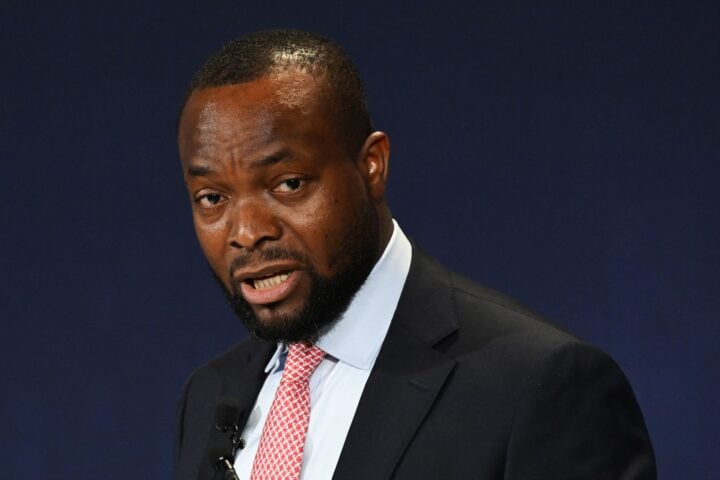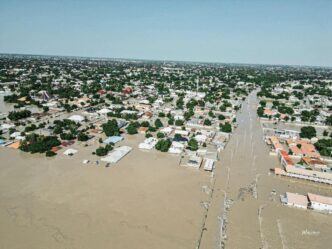BY MICHAEL OYEWOLE
In the last 17 months, the minister of communications and digital economy, Bosun Tijani, has shown a keen interest in propelling the nation into the age of artificial intelligence (AI). However, this ambition seems at odds with the stark reality of the country’s internet infrastructure, which remains woefully inadequate for such technological leaps.
No doubt, Bosun Tijani’s fervour for AI represents a forward-looking vision for our digital future. Nevertheless, a myopic focus on AI, devoid of addressing the fundamental challenges of internet connectivity, risks rendering this vision illusory. For the country to truly capitalise on AI’s transformative power, rigorous efforts must be equally directed toward developing robust infrastructural frameworks alongside advanced AI strategies. Through this dual focus, the country can realistically transition from mere aspiration to tangible realisation in the digital landscape.
I acknowledge the transformative potential of AI for our economy, education, healthcare, and security, and reckon with strategies that include fostering an ecosystem where AI can thrive, thereby positioning Nigeria not just as a consumer but as a contributor to global AI innovations. Initiatives like the National Artificial Intelligence Strategy are a testament to this commitment, aiming to cultivate skills, encourage research, and attract investment in this critical sector. However, the harsh reality of poor internet connectivity stares us all in the face.
Advertisement
Sadly, all of Tunji Bosun’s big talk game regarding AI runs into a significant barrier, poor internet connectivity. At present the country’s internet infrastructure is characterised by multifaceted challenges, which have been left largely unaddressed with no actionable solution to tackle these hindrances.
Despite being the most populous nation in Africa, Nigeria faces significant challenges in broadband accessibility, with penetration rates remaining below 50%. This issue is particularly acute in rural regions, where connectivity is severely limited. Sad. A large chunk of telecommunications consumers frequently experience unreliable internet service, marked by frequent outages, slow data transfer rates, and exorbitant costs, all of these factors will most likely impair the effectiveness of data-intensive artificial intelligence applications.
More so, there is a notable digital divide between urban and rural regions, leaving a substantial portion of the population disconnected from digital resources. This disparity not only obstructs the broader adoption of AI technologies but also exacerbates existing educational and economic inequities across the country.
Advertisement
Ordinarily, one would expect the minister to as a matter of utmost importance deal with poor internet connection while massively onboarding the substantial part of the population who are disconnected from digital resources. For the record, I greatly admire the minister’s policy suggestions regarding AI and his noble efforts. His well-intentioned enthusiasm for AI is commendable and forward-thinking. My reservation on this matter is fueled by him not seemingly putting the right foot forward. The bitter truth is that he cannot incorporate AI adoption on a larger scale across the country without decisively prioritising good internet connection and seamless access to digital tools.
Adding to this mix is the cost of access to internet connectivity – data. A few days ago, the telecommunication companies in Nigeria implemented an upward review of internet cost, an increment sanctioned by the Nigerian Communications Commission (NCC), an agency under the federal ministry of communications, innovation and digital economy. This increase is coming at a time when most Nigerians are grappling with one form of economic hardship or the other. Realistically, the cost of internet connectivity is crucial for fostering an environment where AI can be effectively adopted, utilised, and further developed in third-world countries. How can anyone miss these critical details? You cannot successfully implement AI adoption when a larger chink of your population cannot afford an internet subscription.
The cost of internet access can also affect education and public awareness about Artificial Intelligence and its intended adoption campaign. For instance, without affordable internet subscriptions, schools and educational institutions might not be able to integrate AI into their curricula, leading to a gap in knowledge and skills necessary for AI development, application and adoption.
Also, the cost of internet connection subscription may negatively impact local innovations since startups and small businesses might not afford the necessary infrastructure, like high-speed internet and cost, to experiment with or develop AI solutions. Inherently, this could slow down or hinder the growth of a local AI ecosystem, leading to reliance on foreign AI technologies which might not be tailored to local needs or contexts.
Advertisement
For me, however, I think Minister Tunji Bosun’s fixation on AI seems somewhat premature when foundational issues like internet connectivity and, the expensive cost of data arising from the poor purchasing power of citizens, are not adequately addressed. The irony is palpable; you cannot effectively implement artificial intelligence technologies without a robust, relatively affordable, reliable internet backbone. Not possible.
Michael Oyewole writes from Ilogbo-Ekiti and can be reached via [email protected]
Views expressed by contributors are strictly personal and not of TheCable.
Add a comment










